Sign up for the newsletter to stay up to date.
Other

What is MuleSoft Certification
Discover the benefits of MuleSoft Certification, a credential that validates your expertise in MuleSoft's integration platform. Learn about the certification process, exam details, and career advantages.Read More
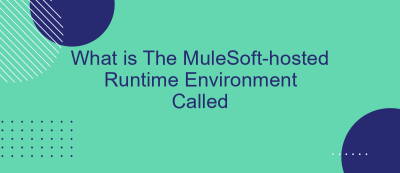
What is The MuleSoft-hosted Runtime Environment Called
Discover what the MuleSoft-hosted runtime environment is called and learn about its features, benefits, and how it simplifies the deployment and management of Mule applications in the cloud.Read More
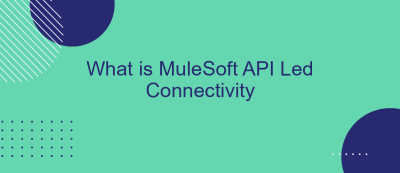
What is MuleSoft API Led Connectivity
Discover how MuleSoft's API-led connectivity approach revolutionizes integration. Learn about its three-layer architecture, benefits, and how it streamlines connecting applications and data.Read More

What is Flow in MuleSoft
Discover the essence of Flow in MuleSoft: learn how it orchestrates integrations, connects applications, and automates processes seamlessly within the MuleSoft Anypoint Platform.Read More
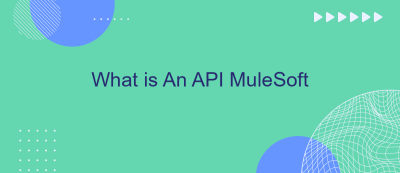
What is An API MuleSoft
Discover what an API is in the context of MuleSoft. Learn how APIs enable seamless integration, streamline data flow, and enhance connectivity across diverse applications and systems.Read More
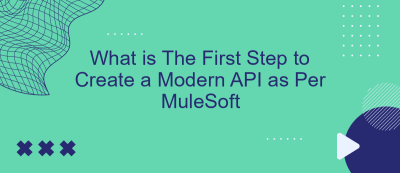
What is The First Step to Create a Modern API as Per MuleSoft
Discover the essential first step in creating a modern API with MuleSoft. Learn how to design an API specification that ensures seamless integration, scalability, and future-proofing for your applications.Read More

What is Connected App in MuleSoft
A Connected App in MuleSoft is a framework that allows external applications to integrate with MuleSoft's Anypoint Platform, providing secure access to APIs and enabling seamless data exchange.Read More
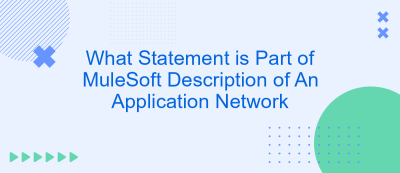
What Statement is Part of MuleSoft Description of An Application Network
Discover how MuleSoft's application network fosters seamless connectivity by integrating diverse applications, data, and devices through APIs, enabling agile and scalable digital transformation.Read More
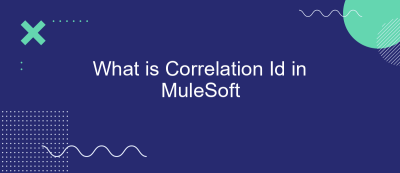
What is Correlation Id in MuleSoft
Discover the concept of Correlation ID in MuleSoft, a unique identifier that ensures traceability and consistency across distributed systems, enhancing debugging and monitoring capabilities.Read More
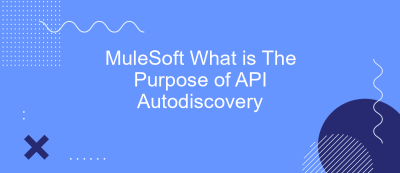
MuleSoft What is The Purpose of API Autodiscovery
Explore the purpose of API Autodiscovery in MuleSoft, a feature that allows seamless integration and management of APIs by automatically detecting and configuring them within the Anypoint Platform.Read More
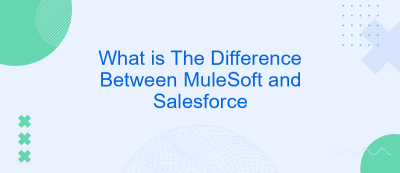
What is The Difference Between MuleSoft and Salesforce
Discover the key differences between MuleSoft and Salesforce in this comprehensive guide. Learn how MuleSoft's integration capabilities complement Salesforce's CRM solutions to enhance business operations.Read More

What is Runtime Manager in MuleSoft
Runtime Manager in MuleSoft is a powerful tool that allows users to deploy, manage, and monitor Mule applications and APIs. It offers real-time insights, scalability, and enhanced control over your integrations.Read More

What is Exchange in MuleSoft
Discover the concept of Exchange in MuleSoft, a powerful platform for sharing reusable assets like APIs, connectors, and templates. Learn how it enhances collaboration and accelerates development.Read More

What is MuleSoft Catalyst
MuleSoft Catalyst is a proven methodology that accelerates digital transformation through a combination of best practices, assets, and services, enabling organizations to achieve business agility.Read More
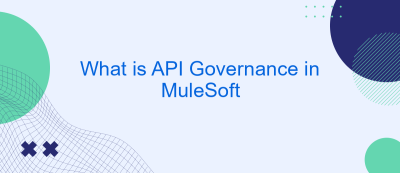
What is API Governance in MuleSoft
Discover the essentials of API Governance in MuleSoft. Learn how to effectively manage, secure, and scale your APIs to ensure consistency, compliance, and optimal performance.Read More
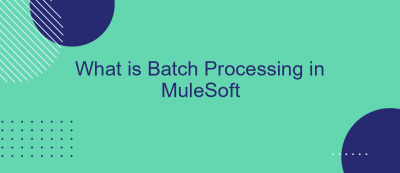
What is Batch Processing in MuleSoft
Discover the essentials of batch processing in MuleSoft. Learn how to efficiently handle large volumes of data, streamline workflows, and optimize performance in your integration projects.Read More
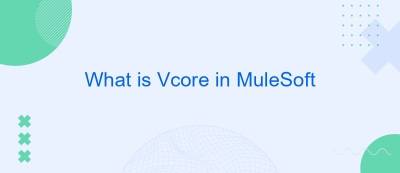
What is Vcore in MuleSoft
Discover the concept of VCore in MuleSoft, its role in API management, and how it impacts your integration performance. Learn how to optimize VCore usage for better scalability and efficiency.Read More
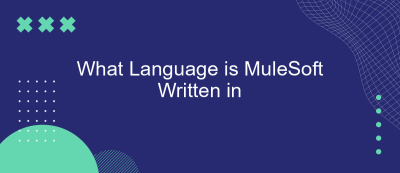
What Language is MuleSoft Written in
Discover the programming languages and technologies behind MuleSoft, the leading integration platform. Explore how Java, Groovy, and XML power its robust and scalable architecture.Read More

What is MuleSoft Platform?
Discover the MuleSoft Platform, a leading integration solution that connects applications, data, and devices across on-premises and cloud environments, enabling seamless digital transformation.Read More
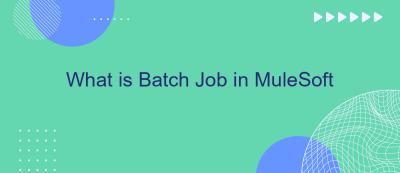
What is Batch Job in MuleSoft
Discover the essentials of batch jobs in MuleSoft, a powerful tool for processing large volumes of data efficiently. Learn how to design, implement, and optimize batch jobs in your applications.Read More
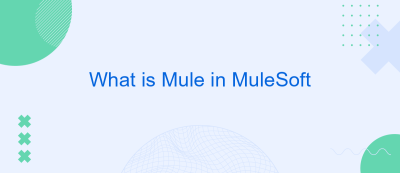
What is Mule in MuleSoft
Mule in MuleSoft is an integration engine that allows developers to connect applications, data, and devices. It simplifies API management, data transformation, and service orchestration.Read More

What is Flow Reference in MuleSoft
Discover the concept of Flow Reference in MuleSoft, a key feature for reusing flows across applications. Learn how it simplifies integration, enhances efficiency, and promotes modular design.Read More
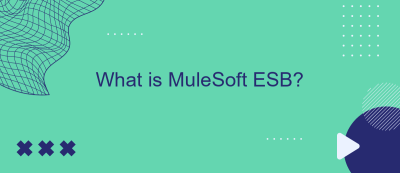
What is MuleSoft ESB?
Discover MuleSoft ESB, a powerful integration platform that connects applications, data, and devices with ease. Learn how it streamlines processes and enhances business agility.Read More

What is MuleSoft Architecture?
Explore the fundamentals of MuleSoft Architecture, including its components, integration patterns, and how it streamlines connectivity across applications, data, and devices in an enterprise.Read More

What is Load Balancer in MuleSoft
Discover the role of a Load Balancer in MuleSoft, enhancing application performance by distributing incoming traffic across multiple servers, ensuring reliability and scalability.Read More

What is Mocking Service in MuleSoft
Discover the essentials of Mocking Service in MuleSoft. Learn how it enables developers to simulate APIs, streamline testing, and accelerate integration projects without real-time dependencies.Read More
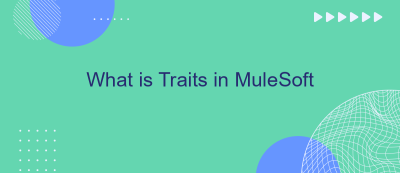
What is Traits in MuleSoft
Discover the concept of Traits in MuleSoft, which allows developers to define reusable properties and behaviors for APIs. Learn how to enhance your API design with customizable traits.Read More

What is VPC in MuleSoft
Discover what a Virtual Private Cloud (VPC) is in MuleSoft. Learn how VPCs enhance security, isolate environments, and provide better control over network configurations in your MuleSoft integrations.Read More

What is Orchestration in MuleSoft
Discover the concept of orchestration in MuleSoft, exploring how it streamlines integration processes by managing and coordinating multiple services and APIs to create seamless workflows.Read More
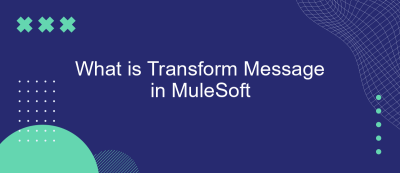
What is Transform Message in MuleSoft
Discover how Transform Message in MuleSoft enhances data integration by converting and mapping data formats seamlessly. Learn its key features, benefits, and practical applications.Read More